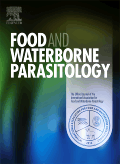
Food and Waterborne Parasitology
Scope & Guideline
Elevating Research on Parasitic Threats to Food and Water
Introduction
Aims and Scopes
- Epidemiology of Foodborne and Waterborne Parasites:
The journal places significant emphasis on the epidemiological aspects of foodborne and waterborne parasites, exploring their prevalence, geographic distribution, and the factors contributing to their transmission. - Molecular and Genetic Studies:
Research published in the journal frequently involves molecular techniques for the detection and characterization of parasites, including genetic analysis to understand diversity and resistance patterns. - Impact of Environmental Factors:
The journal investigates how environmental changes, such as climate change and pollution, affect the distribution and viability of parasites, highlighting the intersection of ecology and parasitology. - Public Health and Food Safety:
A core area of focus is the implications of parasitic infections on public health, including risk assessments, surveillance strategies, and interventions aimed at controlling and preventing infections. - Innovative Diagnostic Methods:
The journal promotes the development and evaluation of novel diagnostic tools and methodologies for rapid detection of parasites in various matrices including food, water, and biological samples.
Trending and Emerging
- One Health Approach:
There is a growing trend towards integrating human, animal, and environmental health perspectives, underscoring the interconnectedness of health issues related to food and waterborne parasites. - Emerging Zoonotic Parasites:
Research on emerging zoonotic parasites, such as 'Cyclospora' and 'Toxoplasma gondii', has gained prominence, reflecting increased awareness of their impact on public health and food safety. - Advanced Molecular Techniques:
The use of advanced molecular techniques, including metagenomics and next-generation sequencing, is becoming increasingly common in studies aimed at understanding parasite dynamics and epidemiology. - Climate Change and Parasitism:
There is an emerging interest in how climate change affects the distribution and prevalence of parasites, with studies exploring the ecological implications of environmental changes. - Public Health Interventions and Risk Assessment:
Research focusing on effective public health interventions and risk assessments to mitigate the spread of foodborne and waterborne parasites is on the rise, highlighting the importance of practical applications of research findings.
Declining or Waning
- Traditional Helminth Studies:
Research on traditional helminths, such as those affecting livestock, seems to be declining in favor of studies focusing on protozoan parasites and zoonotic infections that have more immediate public health implications. - Studies with Limited Geographic Scope:
Papers that focus on localized studies with limited geographic relevance are becoming less common, as the journal increasingly favors global or meta-analytical approaches that provide broader insights. - In-depth Animal Studies:
While animal studies still play a role, there is a noticeable decrease in the number of publications solely dedicated to animal hosts, with a stronger emphasis now on human health impacts and zoonotic transmission.
Similar Journals
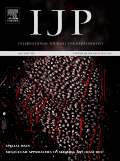
INTERNATIONAL JOURNAL FOR PARASITOLOGY
Connecting Researchers to the Heart of ParasitologyInternational Journal for Parasitology, published by Elsevier Sci Ltd, stands as a premier platform for disseminating groundbreaking research in the fields of parasitology and infectious diseases. With an impressive impact factor represented by its Q1 quartile rankings in both Infectious Diseases and Parasitology for 2023, this journal commands significant attention within the scientific community. Operating since 1971, it has profoundly contributed to the understanding of parasitic infections and their implications for human health, occupying a distinguished position ranked #7 out of 79 in Parasitology and #64 out of 344 in Infectious Diseases according to Scopus metrics. Although the journal currently does not offer open access options, it ensures rigorous peer review and unparalleled academic integrity, providing researchers, professionals, and students with critical insights necessary for advancing knowledge and fostering innovations in parasitology. Together with its rich historical foundation and commitment to excellence, the journal is indispensable for anyone delving into the complexities of parasites and their impact on both host and ecosystem.
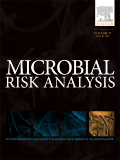
Microbial Risk Analysis
Connecting Scholars to Combat Microbial ThreatsMicrobial Risk Analysis, published by Elsevier, is a pivotal academic journal specializing in the intersection of epidemiology, infectious diseases, and medical microbiology. With an ISSN of 2352-3522 and an E-ISSN of 2352-3530, this journal has been contributing to the field since its inception in 2016 and continues to invite groundbreaking research as it converges through 2024. With a respectable impact factor, Microbial Risk Analysis holds a Q3 designation in key categories, showcasing its credibility with ranks such as #48 in Epidemiology and #124 in Infectious Diseases according to Scopus. The journal serves as an essential platform for researchers, professionals, and students alike, aiming to enhance understanding of microbial risks and their public health implications. Although it operates under a subscription model, its contents remain accessible to a broad range of interdisciplinary scholars dedicated to advancing microbial research. For those at the forefront of epidemiological and infectious disease studies, Microbial Risk Analysis represents a crucial resource for disseminating knowledge and fostering collaboration.

Parasite
Empowering global collaboration in the fight against parasitic diseases.Parasite is a distinguished open-access journal published by EDP Sciences S A based in France, specializing in the multifaceted field of parasitology and related disciplines. Since its inception in 1994, it has played a pivotal role in advancing research in Agricultural and Biological Sciences, Animal Science and Zoology, Infectious Diseases, Insect Science, and Veterinary Sciences, earning a prominent place in the academic community with its 2023 rankings placing it in the Q1 category for several key areas. With an impact factor reflective of its quality and engagement, the journal fosters a collaborative environment for researchers, professionals, and students to disseminate and access high-quality studies and reviews. Operating under an open-access policy since 2013, Parasite ensures that cutting-edge research is accessible to a global audience, thereby promoting knowledge sharing and innovation in the field. For more information, please visit the journal's homepage and explore its extensive repository of articles that contribute to the understanding of parasitic interactions and their implications in health and agriculture.
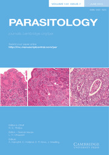
PARASITOLOGY
Leading the discourse in parasitic biology since 1908.PARASITOLOGY, published by Cambridge University Press, is a prestigious journal that has been at the forefront of research in the field of parasitology since its inception in 1908. This esteemed publication carries the ISSN 0031-1820 and E-ISSN 1469-8161, and its rigorous peer-reviewed articles provide insights into both fundamental and applied aspects of parasitic biology, infectious diseases, and host-parasite interactions. With a commendable impact factor, PARASITOLOGY ranks in the top quartile (Q1) for Animal Science and Zoology and holds Q2 rankings in both Infectious Diseases and Parasitology categories, indicating its significant influence and contribution to these disciplines. The journal's diverse scope allows for a broad range of research articles, reviews, and case studies, making it an essential resource for researchers, professionals, and students seeking to stay updated on the latest developments in the field. Based in the United Kingdom, PARASITOLOGY offers valuable access to critical research in an era where understanding parasitic diseases is more vital than ever, and continues to shape the future of this important scientific field.
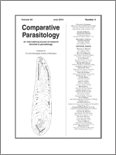
Comparative Parasitology
Connecting Researchers Through Open Access DiscoveriesComparative Parasitology, published by the Helminthological Society of Washington, serves as a vital platform for the dissemination of innovative research in the fields of parasitology, ecology, and evolution. With an ISSN of 1525-2647 and an E-ISSN of 1938-2952, this journal has charted a course of academic influence since its inception in 1996, and is set to continue until 2024. Although it currently holds a Q4 ranking in both Ecology, Evolution, Behavior and Systematics and Parasitology categories, it guarantees significant contributions and diverse studies, providing an essential resource for researchers and practitioners in these domains. Located in the United States and managed by Allen Press Inc, Comparative Parasitology emphasizes open access, ensuring that vital research findings are readily available to the global community. The journal remains dedicated to fostering an understanding of the complexities of host-parasite interactions and promoting interdisciplinary collaboration, making it a crucial resource for students and professionals alike.
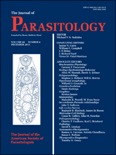
JOURNAL OF PARASITOLOGY
Fostering Knowledge in the Dynamic Field of ParasitologyJOURNAL OF PARASITOLOGY is a leading scholarly publication dedicated to the field of parasitology, published by ALLEN PRESS INC. With an impactful history spanning from 1945 to 2024, this journal serves as a vital resource for researchers, professionals, and students interested in the complex interactions between parasites and their hosts. Operating from its base in the United States, this journal holds a Scopus quartile ranking of Q3 in Ecology, Evolution, Behavior and Systematics, Medicine (Miscellaneous), and Parasitology, providing a solid reflection of its impact within these categories. While currently not offering Open Access, the JOURNAL OF PARASITOLOGY continues to encourage the dissemination of pivotal research findings that contribute to our understanding of parasitic diseases and ecological systems, positioning it as an indispensable tool for knowledge advancement in the life sciences.

REVISTA BRASILEIRA DE PARASITOLOGIA VETERINARIA
Elevating Standards in Parasitological Science and PracticeThe REVISTA BRASILEIRA DE PARASITOLOGIA VETERINARIA, published by the BRAZILIAN COLLEGE OF VETERINARY PARASITOLOGY, serves as a premier platform for disseminating groundbreaking research and advancements in the field of veterinary parasitology. Since its transition to Open Access in 2007, the journal has significantly contributed to fostering global collaboration and knowledge sharing among researchers and practitioners. Situated in Brazil, this esteemed journal features a diverse range of studies focused on the latest developments and challenges in veterinary and parasitological sciences. With a commendable Q3 ranking in Parasitology and Q2 ranking in Veterinary (miscellaneous) for 2023, it is recognized for its growing impact in the academic community, particularly holding positions in the 60th percentile for General Veterinary and 37th percentile in Parasitology. Researchers, professionals, and students interested in enriching their understanding of veterinary parasitology will find this journal a vital resource, as it bridges regional expertise with global research trends, thus embracing a holistic approach to veterinary health.

PARASITOLOGY RESEARCH
Elevating understanding through rigorous research and review.PARASITOLOGY RESEARCH, published by Springer, stands as a pivotal journal in the fields of parasitology, infectious diseases, and insect science, with a rich history dating back to 1987. Operating from Germany, this journal has garnered an impressive reputation, achieving a high ranking within various categories, including Q1 in Veterinary (miscellaneous) and Q2 across several relevant fields as of 2023. While it does not currently offer Open Access options, the journal remains a vital resource for researchers, professionals, and students seeking to contribute to and keep pace with advancements in parasitological studies. With a commitment to publishing high-quality research, PARASITOLOGY RESEARCH serves as an essential forum for disseminating findings that enhance our understanding of parasitic organisms and their impacts on health and the environment. Explore this journal to engage with cutting-edge investigations and reviews that drive innovation in parasitology and related disciplines.

Parasites Hosts and Diseases
Fostering Global Insights into Parasitology and Infectious DiseasesParasites Hosts and Diseases is an emerging academic journal focusing on the intricate relationships between parasites, their hosts, and associated diseases. Published by the Korean Society of Parasitology in collaboration with Seoul National University College of Medicine, this journal is a significant contribution to the fields of Infectious Diseases and Parasitology, and it has secured a place in the Q3 category for both disciplines as of 2023. With an ISSN of 2982-5164 and an E-ISSN of 2982-6799, this open-access publication aims to foster scholarly communication and provide a platform for researchers to disseminate their findings on critical issues related to parasitic infections and the pathogenesis thereof. Although it is still in the early stages of its history, the journal has already positioned itself as a useful resource within its field, with Scopus rankings showing it as 48th of 79 in Parasitology and 210th of 344 in Infectious Diseases, indicating its growing influence and the potential for impactful research. Situated in South Korea, and via its open-access model, Parasites Hosts and Diseases is committed to reaching a global audience of scientists, healthcare professionals, and students, all dedicated to understanding and combating the challenges posed by parasitic diseases.
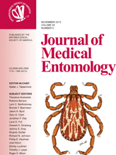
JOURNAL OF MEDICAL ENTOMOLOGY
Advancing knowledge at the intersection of insects and health.JOURNAL OF MEDICAL ENTOMOLOGY, published by Oxford University Press, is a prestigious journal dedicated to advancing the field of medical entomology, a critical area of study that explores the intersection of insect biology and public health. With an ISSN of 0022-2585 and an E-ISSN of 1938-2928, the journal features high-quality research articles and reviews that delve into the impacts of insect vectors on infectious diseases and parasitology, making it an essential resource for professionals and researchers alike. The journal has garnered significant recognition in the academic community, currently ranking in the top quartiles: Q2 in Infectious Diseases, Q1 in Insect Science, Q2 in Parasitology, and Q1 in Veterinary (miscellaneous), reflecting its influential contributions to these disciplines. With its comprehensive coverage of topics spanning across medical entomology and veterinary sciences, authors and readers will find a platform rich in valuable insights and data. The journal's long-standing history, dating back to its inception in 1964, ensures a legacy of excellence that continues through 2024 and beyond. While it does not currently offer open access, researchers are highly encouraged to engage with its content to foster a deeper understanding of the crucial role that insects play in human and animal health.